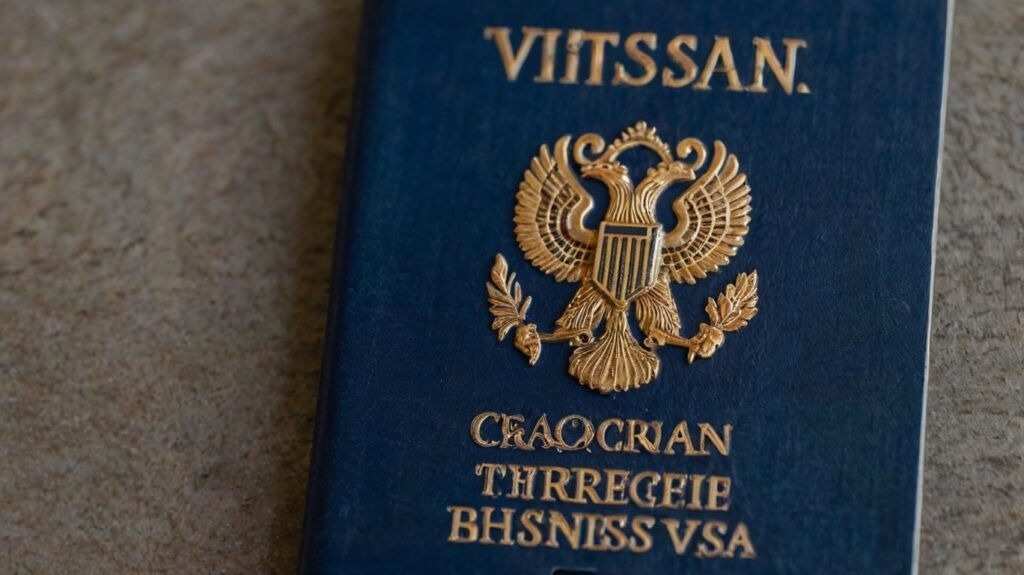Introduction
When planning a trip to Greece, choosing the right visa is of paramount importance. Greece, with its rich history, stunning landscapes, and vibrant culture, attracts millions of visitors every year, ranging from tourists seeking leisurely adventures to business professionals attending conferences and meetings. Understanding the differences between a tourist visa and a business visa is crucial for ensuring a smooth and hassle-free experience.
A Greece tourist visa, often referred to as a short-stay visa or Schengen visa, allows individuals to explore the country’s historical landmarks, picturesque islands, and culinary delights. This type of visa is ideal for those intending to travel for leisure, visiting family or friends, or engaging in non-commercial activities.
On the other hand, a Greece business visa caters to individuals who need to attend business meetings, conferences, trade fairs, or engage in other professional activities within the country. This visa type provides the necessary legal framework for conducting business operations and networking without any legal complications.
Given Greece’s appeal as both a travel and business destination, it is essential to understand which visa type aligns best with your travel intentions. The appropriate visa ensures compliance with Greek immigration laws and paves the way for a successful visit, whether for exploring the ancient ruins of Athens or sealing a business deal in Thessaloniki.

Understanding the Greece Tourist Visa
The Greece Tourist Visa, often referred to as the Schengen Visa, is a type of short-term visa designed for individuals who wish to explore the cultural and natural beauty of Greece. This visa is ideal for leisure travelers who plan to engage in activities such as sightseeing, visiting family or friends, and attending cultural events. It allows visitors to experience the rich history, vibrant traditions, and stunning landscapes that Greece has to offer.
Primarily, the Greece Tourist Visa is intended for those who do not intend to engage in any form of business activities. This visa type is perfect for tourists looking to immerse themselves in Greece’s historical sites like the Acropolis in Athens, the ancient ruins of Delphi, or the picturesque islands of Santorini and Mykonos. Additionally, it is suitable for individuals attending cultural festivals or visiting relatives living in Greece.
The process of obtaining a Greece Tourist Visa involves several steps. Applicants must complete a visa application form and submit it along with required documents, which typically include a valid passport, recent passport-sized photographs, proof of travel insurance, and evidence of sufficient financial means to cover the duration of the stay. Additionally, applicants must provide a detailed itinerary, including confirmed accommodation bookings and round-trip flight reservations.
Another crucial requirement is the proof of ties to the applicant’s home country, such as employment verification or proof of property ownership, which helps demonstrate the intention to return after the visit. The visa application is usually processed within 15 calendar days, but it is advisable to apply well in advance of the planned travel date to account for any potential delays.
Understanding the specific requirements and purpose of the Greece Tourist Visa is essential for a smooth and enjoyable travel experience. Whether exploring ancient ruins, enjoying the local cuisine, or partaking in traditional festivities, the Greece Tourist Visa opens the door to unforgettable adventures in one of Europe’s most captivating destinations.
When You Need a Tourist Visa
When planning a visit to Greece, determining whether you need a tourist visa is a critical step. Various scenarios necessitate a tourist visa, depending largely on your nationality and the duration of your intended stay. Citizens of the European Union and certain other countries are exempt from requiring a visa for short stays, typically up to 90 days within a 180-day period. However, if you are a national of a country not included in these exemptions, you must obtain a tourist visa before entering Greece.
For individuals requiring a tourist visa, the application process involves submitting specific documents, such as a valid passport, proof of accommodation, travel itinerary, and financial means to cover the trip. The requirements may vary slightly based on your country of origin, so it is advisable to verify the precise documents needed with the nearest Greek embassy or consulate. Utilizing reliable resources such as Star Gate Holding’s visa information can also provide up-to-date and comprehensive guidance on the application process.
Additionally, certain situations necessitate a tourist visa even if you are from a visa-exempt country. For instance, if you plan to stay in Greece for more than 90 days within a 180-day period, you will need to apply for a long-stay visa or residence permit, as the standard tourist visa will not suffice. This is particularly pertinent for those intending to engage in activities beyond tourism, such as studying or participating in non-business related projects.
In summary, the need for a tourist visa to Greece depends on your nationality and the length of your stay. Consulting with the nearest Greek embassy or consulate or seeking advice from experts like Star Gate Holding ensures that you have the correct visa type, facilitating a smooth and enjoyable visit to Greece.
Exploring the Greece Business Visa
The Greece Business Visa is a specific type of visa designed to facilitate the entry of professionals and entrepreneurs into Greece for business-related activities. This visa is essential for individuals who intend to engage in activities beyond tourism, particularly those that involve commercial or professional engagements. It allows business travelers to stay in Greece for a specified short-term period, typically up to 90 days within a 180-day timeframe, depending on the specifics of their business needs and the agreements between Greece and their home country.
The Greece Business Visa is necessary for a range of professional activities. These include attending international conferences or trade fairs hosted in Greece, participating in business meetings, negotiating contracts, or exploring potential business partnerships. It also covers visits for market research or business development purposes, such as evaluating local markets, meeting with prospective clients, or investigating investment opportunities. Essentially, any activity that advances commercial interests and involves active professional engagement in Greece requires a business visa.
For professionals, the Greece Business Visa is an invaluable tool. It ensures lawful entry and stay in Greece while conducting business operations or professional duties. This visa not only supports the smooth facilitation of international business but also reinforces the legal and regulatory framework within which business professionals must operate. It underscores the importance of adhering to immigration laws while pursuing business opportunities in foreign markets.
Obtaining a Greece Business Visa involves a specific application process, which generally includes presenting documents such as an invitation letter from a Greek business entity, proof of business activities, and financial means to support the stay. The emphasis on formal business purposes distinguishes this visa from the Greece Tourist Visa, which is intended purely for leisure and non-professional activities. For business professionals, understanding and acquiring the appropriate visa type is crucial for ensuring compliance and maximizing the potential for successful business engagements in Greece.
When You Need a Business Visa
When planning a trip to Greece for professional purposes, it is crucial to determine whether you require a business visa. A Greece business visa is necessary for individuals traveling to the country to engage in various professional activities. This may include attending conferences, meetings, and seminars, negotiating contracts, exploring business opportunities, or participating in research collaborations. Unlike a tourist visa, which is designed for leisure and recreational activities, a business visa provides the legal framework for conducting business-related tasks.
One scenario where a business visa is indispensable is when an executive needs to attend a high-stakes business meeting with potential partners or clients in Greece. This visa ensures that the executive can legally participate in negotiations and formalize agreements without any legal hindrances. Similarly, professionals attending industry-specific conferences or seminars will require a business visa to enter Greece, as these events are considered professional engagements rather than leisure activities.
Entrepreneurs looking to explore business opportunities in Greece, such as establishing new ventures, meeting with local investors, or conducting market research, will also need a business visa. This visa type allows them to stay in Greece for an extended period, providing ample time to network and make informed decisions about potential investments. Researchers and academics visiting Greece for collaborative projects or to deliver lectures at educational institutions will find the business visa essential for their professional pursuits.
The benefits of holding a Greece business visa extend beyond mere legality. It offers the peace of mind that comes with knowing all professional engagements are legitimate and sanctioned by the Greek authorities. This visa often comes with the added advantage of multiple entries, allowing business travelers to make several trips within the visa’s validity period without the need for reapplication. Overall, the Greece business visa is a valuable asset for anyone looking to conduct business in the country, ensuring smooth and uninterrupted professional activities.

Application Process for Both Visas
The application process for both the Greece tourist visa and the Greece business visa involves several essential steps, though there are notable differences between the two. Initially, applicants for both visa types must fill out specific application forms, which can be obtained from the Greek consulate or embassy. It is crucial to ensure all information is accurate and complete, as discrepancies can lead to delays or rejections.
Following the form submission, gathering the required documents is the next critical step. For a Greece tourist visa, applicants need to provide a valid passport, recent passport-sized photographs, proof of travel insurance, a confirmed travel itinerary, and evidence of sufficient financial means to cover their stay. Additionally, a hotel reservation or an invitation letter from a host in Greece may be required.
In contrast, the Greece business visa demands a slightly different set of documents. Besides the basic requirements such as a valid passport and photographs, applicants must submit an invitation letter from a Greek company or organization, proof of business ties or employment, and details of the planned business activities. Documents like a company registration certificate and proof of previous business dealings with Greek counterparts can also strengthen the application.
Another significant difference is the interview process. For a Greece tourist visa, interviews are generally less rigorous and focus on the applicant’s travel plans and ties to their home country. On the other hand, business visa interviews tend to be more detailed, often delving into the nature of the business activities, the applicant’s professional background, and the intent of the trip.
Overall, while the application processes for both the tourist and business visas to Greece share common steps, the specific requirements and focus areas differ, reflecting the distinct purposes of each visa type. Potential applicants should carefully review the criteria and prepare their documents accordingly to ensure a smooth application experience.
Tips for a Successful Visa Application
When embarking on the process of obtaining either a Greece tourist visa or Greece business visa, it is essential to approach the application with meticulous preparation. Accurate documentation stands at the forefront of a successful application. Ensure that all required documents, such as valid passports, financial statements, and travel itineraries, are complete and up-to-date. Missing or incorrect documentation can lead to delays or even rejection of your visa application.
Timely submissions are equally critical. Visa processing times can vary, and submitting your application well in advance of your planned travel dates helps to avoid last-minute complications. It is advisable to check the specific processing times for the type of visa you are applying for and to adhere to those timelines strictly.
Professional assistance can play a significant role in a smooth application process. Immigration experts and visa consultants have the expertise to guide you through the complexities of visa requirements and procedures. They can help ensure that your application is complete and meets all necessary criteria. Consider services like Star Gate Holding, which offer free counseling and comprehensive support, to enhance your chances of success.
Moreover, understanding the distinctions between a tourist visa and a business visa for Greece is crucial. Each visa type has specific requirements and intended purposes. A Greece tourist visa is typically aimed at individuals wishing to explore the country for leisure, while a Greece business visa is designed for those planning to engage in professional activities. Accurately identifying your purpose of travel and selecting the appropriate visa type can prevent potential issues and streamline the application process.
In summary, careful attention to documentation, timely submissions, and seeking professional assistance are key factors in ensuring a successful visa application. By following these tips, you can navigate the process with confidence and increase your likelihood of securing the necessary visa for your trip to Greece.
Conclusion
When planning a trip to Greece, distinguishing between a tourist visa and a business visa is crucial. A Greece tourist visa is tailored for individuals intending to explore the country’s rich historical sites, scenic landscapes, and vibrant culture. On the other hand, a Greece business visa is designed for professionals attending conferences, business meetings, or engaging in other work-related activities.
Choosing the correct visa type ensures compliance with immigration laws and facilitates a smoother travel experience. A tourist visa permits leisure activities, while a business visa allows for professional engagements. Overlapping these purposes without the appropriate visa could lead to complications during your stay.
Given the complexities involved in the visa application process, it is advisable to seek expert guidance. Star Gate Holding offers free counseling services to help you navigate through the requirements and documentation needed for a successful application. Their expertise can save you time and prevent potential issues, ensuring you can fully enjoy or effectively conduct your business in Greece.
Unlock the wonders of Greece with peace of mind by selecting the right visa for your journey. Whether you are drawn to Greece’s ancient ruins and picturesque islands or the thriving business opportunities, making an informed decision about your visa type is the first step. Contact Star Gate Holding today for a seamless visa application process and start your adventure or business venture in Greece with confidence.


